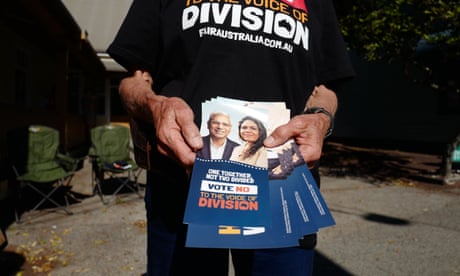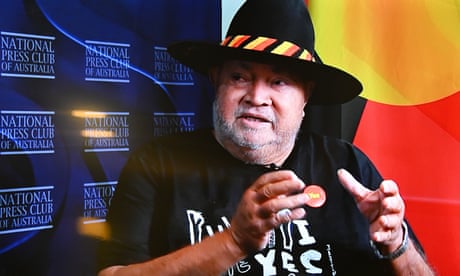Extract from The Guardian

In Saturday’s Indigenous voice to parliament referendum ‘we can write a new chapter in Australia’s history’, Linda Burney writes.
We can write yes to recognition, yes to a voice and to a better future.
After
the dispossession and tumult of colonisation, there was a period of
“great silence” – a period of denial about our nation’s history.
Aboriginal and Torres Strait Islander people have survived against the odds and giants like Vincent Lingiari, Charlie Perkins, Eddie Mabo and Lowitja O’Donoghue have helped to move Australia forwards.
But despite this progress, Indigenous Australians don’t have the same opportunities as everyone else. The status quo isn’t working.
In a place like the Aṉangu Pitjantjatjara Yankunytjatjara lands, the life expectancy for a local Aboriginal man is 48.
Across the country, an infant mortality rate that is double that of other Australians.
A suicide rate that is twice as high.
You can make a difference this week by listening to Indigenous Australians who are asking for a voice and voting yes.
Last year I visited a school in a remote community. And, as a former school teacher, I thought I’d ask the kids a pretty common question: '“What do you want to do when you grow up?”
At first there was silence.
I looked around the room and I got nothing. I thought to myself, surely these kids have dreams about their future.
I asked again: “You know, when you’re adult and you finish school, what do you want to do?”
Suddenly, one arm shot up. A little girl said she wanted to be a nurse. Then a boy said he wanted to grow up and play footy like his uncle. Then another little boy flung his arm up and said he wanted to fly helicopters.
And the other kids roared with laughter.
Then I remembered what the facts and figures tell us.
A one- to three-year gap in literacy and numeracy between Indigenous and non-Indigenous children. A gap that widens through school. Too many Indigenous kids start behind at school and fall further behind.
This echoes through life.
Indigenous children are more than 20% less likely to finish school, and more than 20% less likely to have a job.
It can’t go on like this. Not when we have an opportunity to change the system that is letting the next generation down.
The reality is that it costs taxpayers about $11,000 to send a young adult to university. It costs about $148,000 to send someone to prison.
Every day during this referendum campaign, I think about those kids and their future. This referendum is about those kids, it’s about the next generation.
So when people ask you, what’s this referendum about? When they ask “What’s in it for me?”
Tell them this: “If you want a future where everybody has a fair shot in life – yes makes it possible.”
Because the form of constitutional recognition Aboriginal and Torres Strait Islander people are seeking is a voice.
That’s what the Uluru statement from the heart has graciously requested. It’s what the vast majority of Indigenous Australians want. First Nations people want structural change that can make a practical difference.
A mechanism that can make children’s lives better. Not just something that will feel good – something that will improve lives of the most vulnerable.
The voice won’t solve every issue overnight. But if we get it right we can make significant progress in almost every area. Progress in health, education, jobs and housing. If we get these right, almost everything else flows from this.
If you’re healthy and get a good education, have a safe place to live and get a decent job – these are the building blocks of a good life.
If Australia says no on 14 October we are accepting that things cannot get better. Those arguing for no are offering no solutions. No will take us nowhere.
But if we find it in our hearts and our heads to say yes, it can take Australia forwards, to a better future.
In the words of the prime minister last year:
I am hopeful, in years to come, we will be able to measure that success not just by the number of people who vote for a voice … but by the lives that the voice helps to change.
The communities it empowers, the opportunities it creates, the justice it delivers, the security it will bring to First Nations people around our country.
It’s time to listen. It’s time to vote yes.


No comments:
Post a Comment